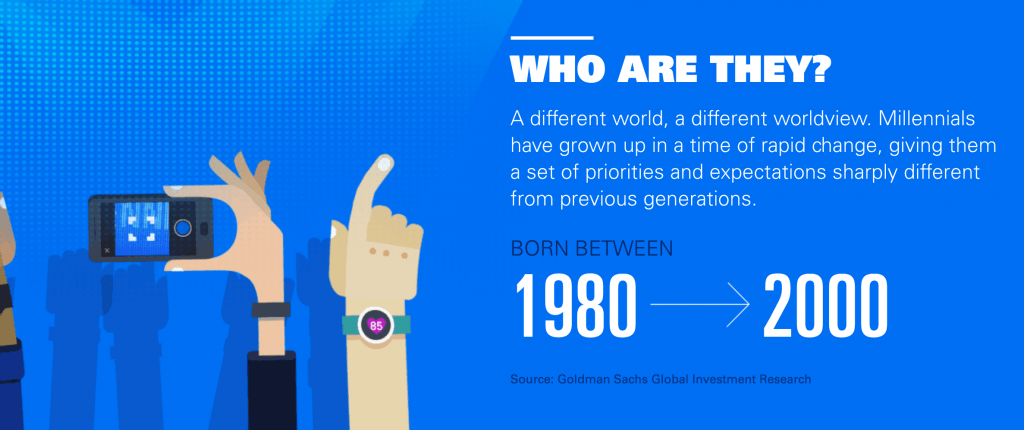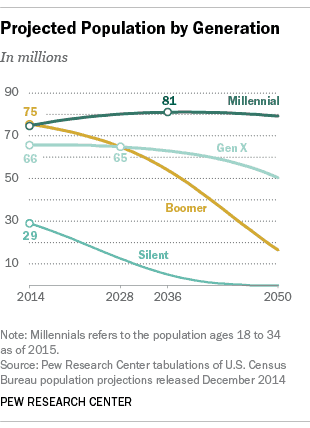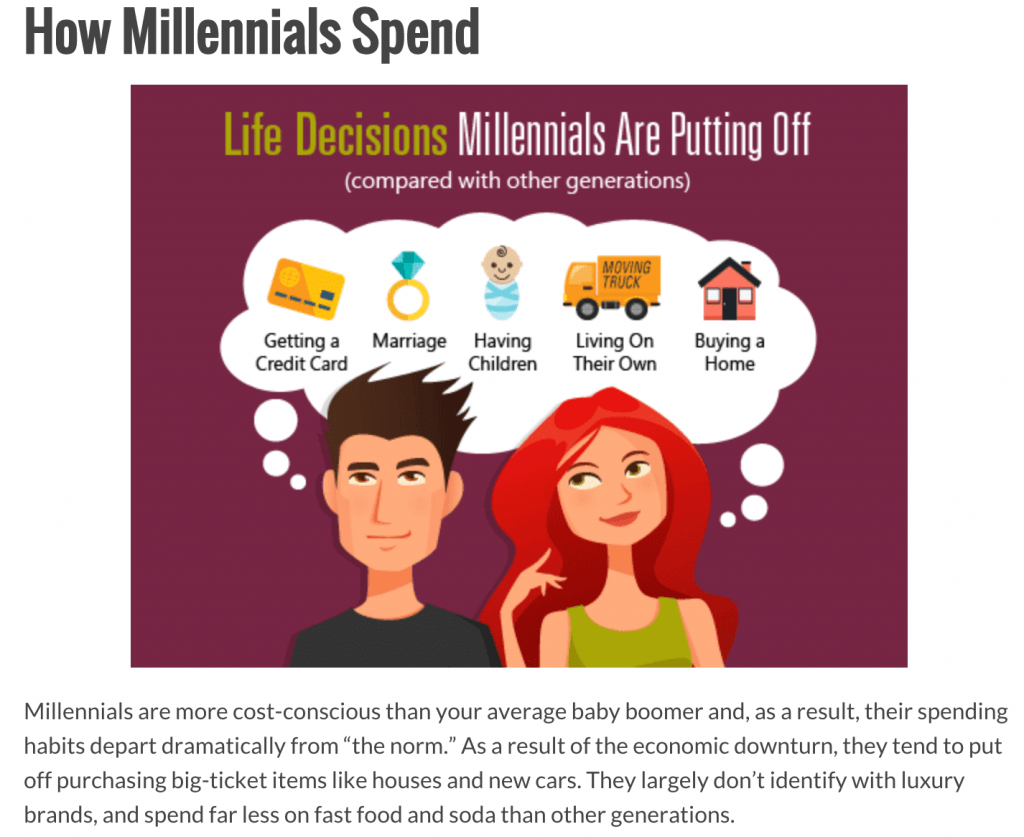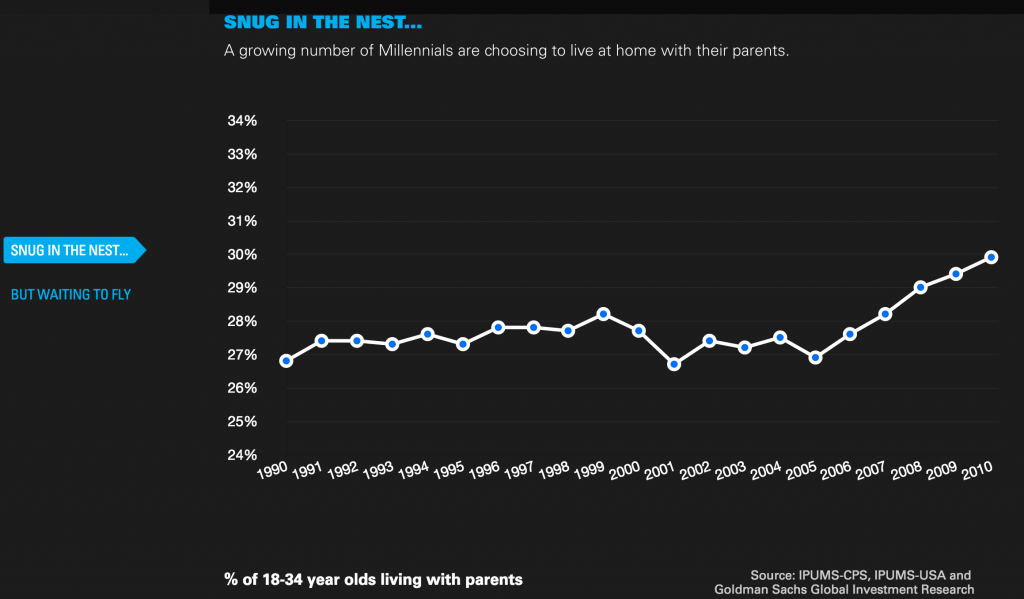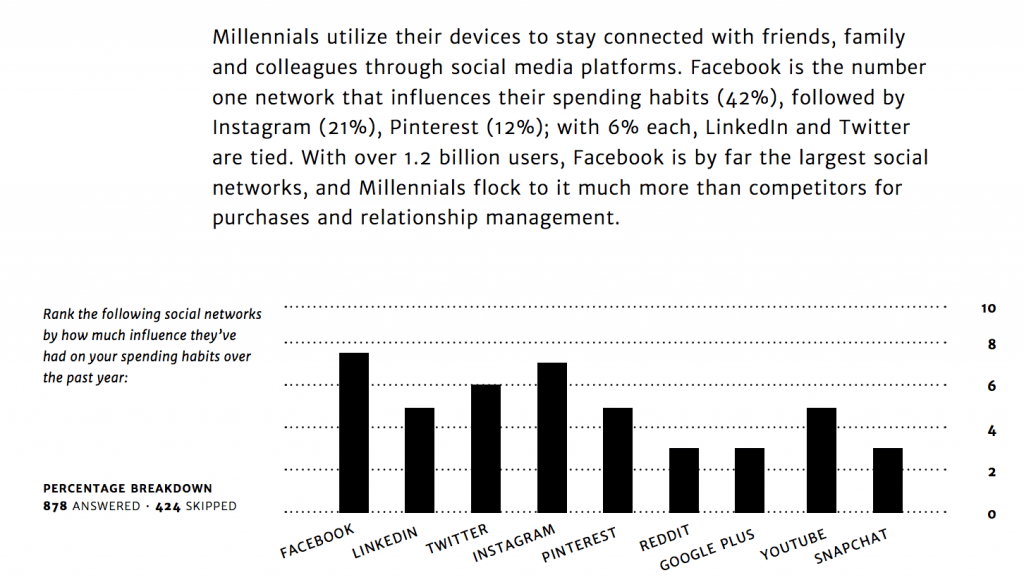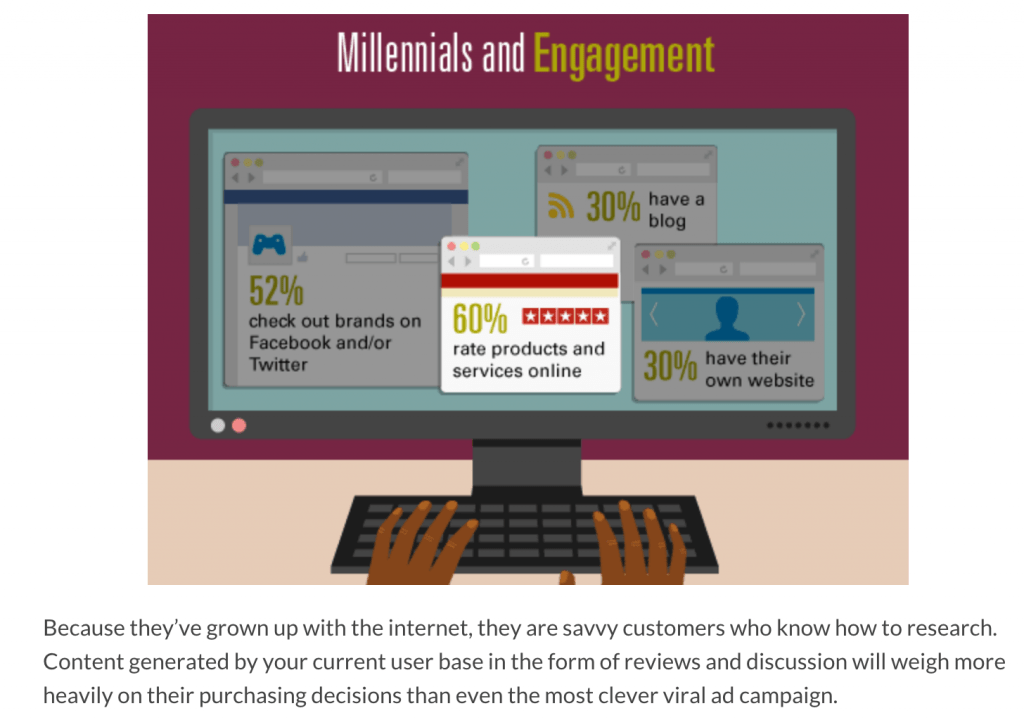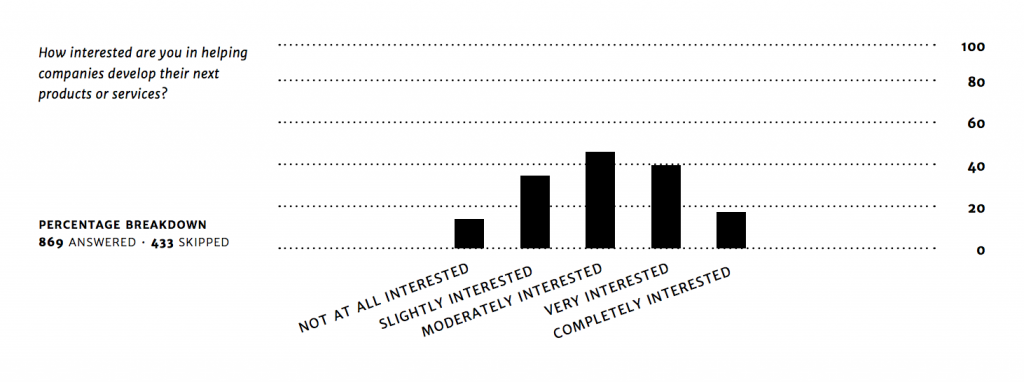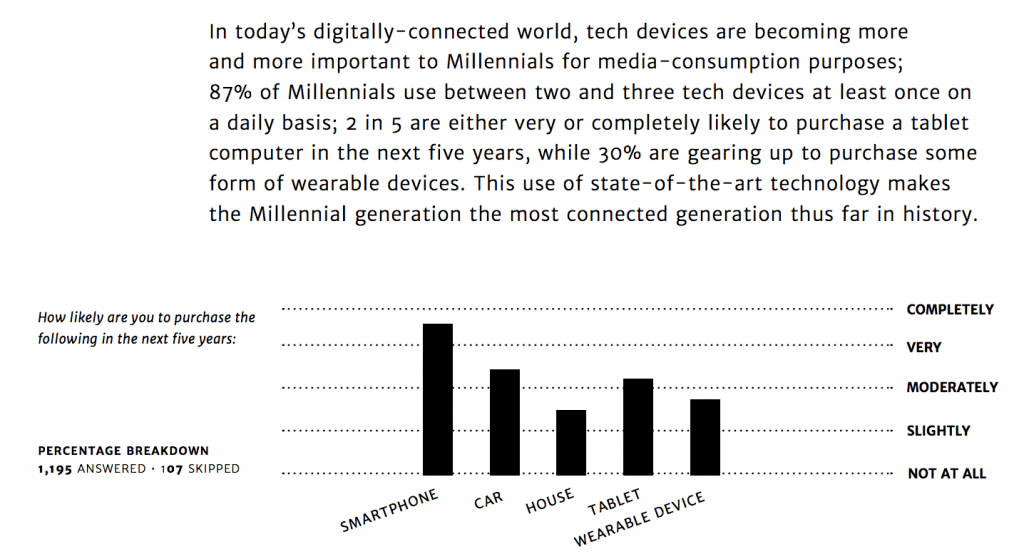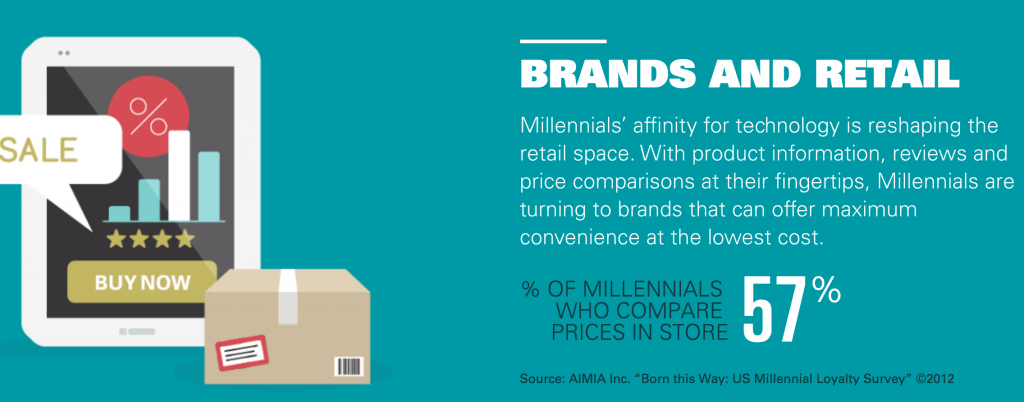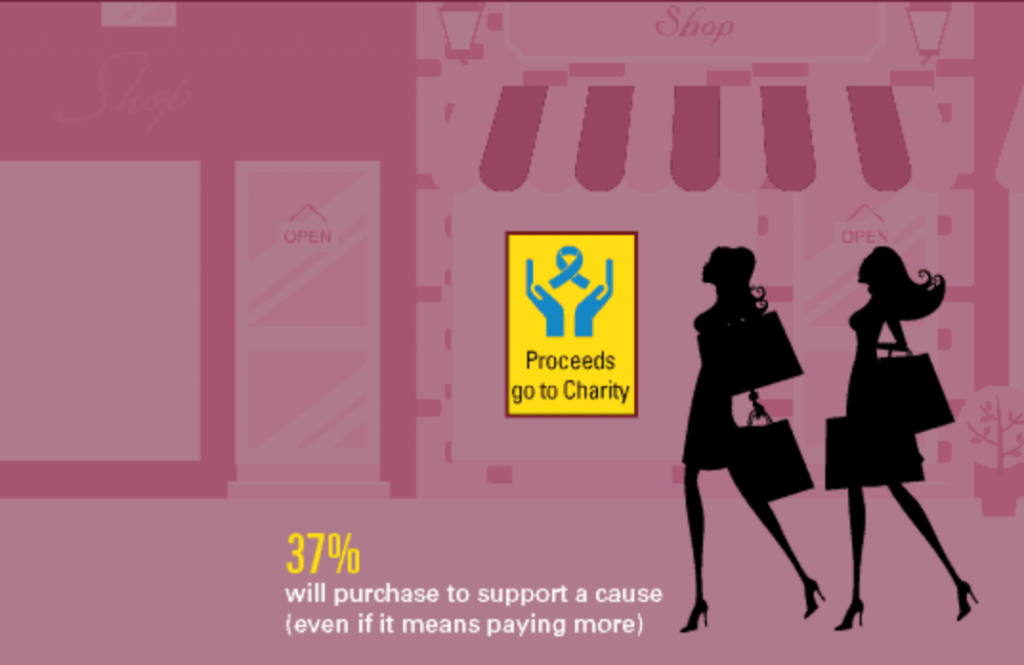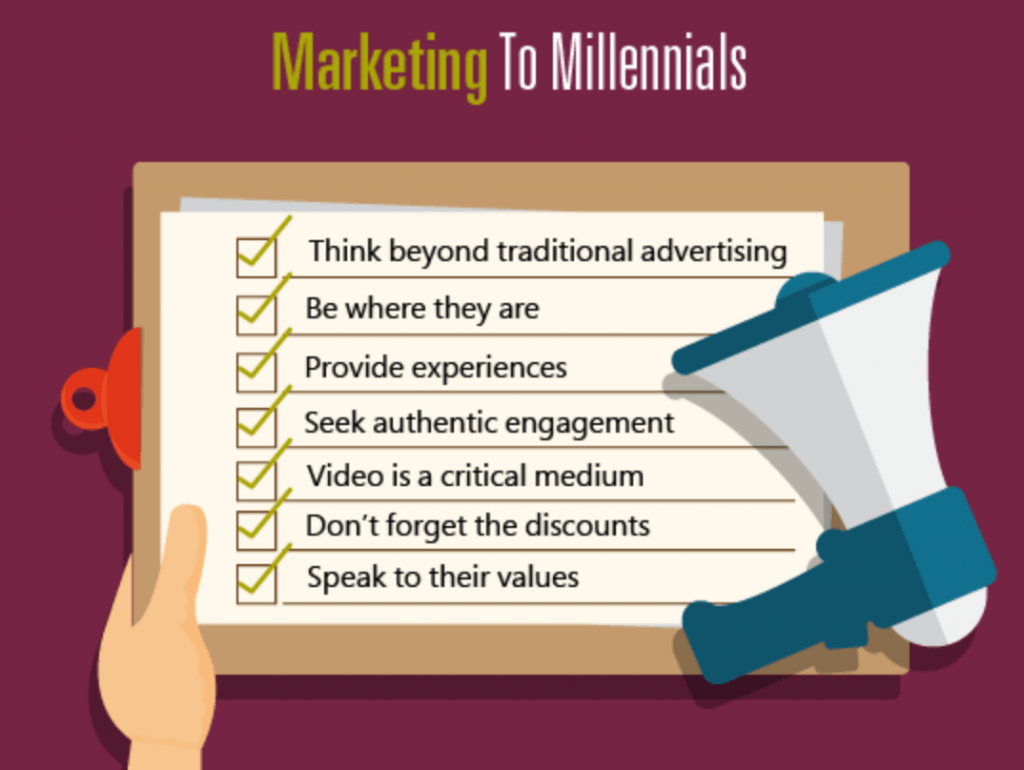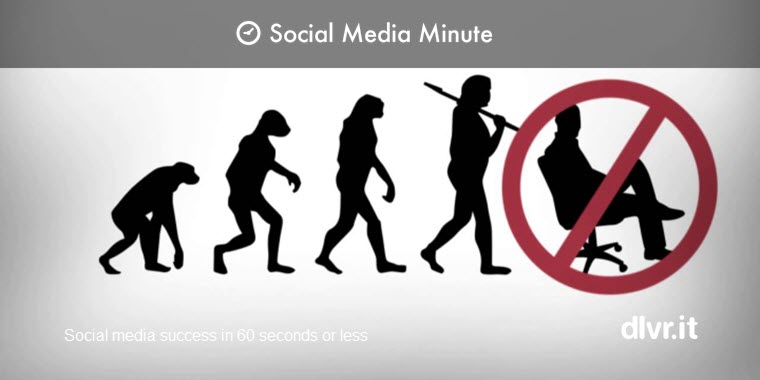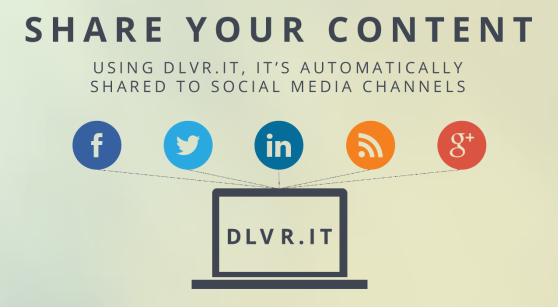
Marketing to Millennials: Everything You Need to Know
In recent blog posts, we’ve alluded to the importance of marketing to millennials when targeting social sharing influencers. The Millennial generation or Generation Y is shaping and shaking up marketing strategies much more than generations before. What exactly does this mean? Who are the millennials? Why are they different than the Baby Boomer or Generation X? Why is marketing to millennials any different than the generation preceding them?
This question brings me to problem #1. Throughout the many notable websites, journals, publications, dictionaries and expert opinions I have read, the millennial age range varies. Does it matter? No, but frankly, my kids are on the cusp at both ends, and I’m curious to see if there are any distinct generational differences between them. To put a stake in the sand, Goldman Sachs defines Millennials as born between 1980 and 2000. Let’s go with that.
Understanding Generational Differences
According to population projections released by the U.S. Census Bureau in December 2014, the “Millennial” generation is projected to surpass the outsized Baby Boom generation as the nation’s largest living generation this year (2015). Millennials are expected to number 75.3 million, surpassing the projected 74.9 million Boomers (ages 51 to 69). The Gen X population (ages 35 to 50 in 2015) is expected to outnumber the Boomers by 2028.
Taken from a white paper on the Rational for Introducing the Generational Communication Gap into the Workplace published by the United Nations Joint Staff Pension Fund, the following are fascinating excerpts on the generational differences:
- Silents/Traditionalists: The Veteran Generation, born between 1925 and 1945, were brought up in a more challenging time with life experiences that included WW II. The economic and political uncertainty that they experienced led them to be hard working, financially conservative, and cautious.
- Baby Boomers: The Boomers, born between 1946 and 1964, were brought up in an abundant, healthy post-war economy, becoming an egocentric generation. They saw the world revolving around them. Nuclear families were the norm. More than anything, work has been a defining part of both, their self-worth and their evaluation of others. Their lifestyle revolves around the fact that they live to work.
- Generation Xers: The Generation X, born between 1965 and 1980, was the first generation raised on “to do lists” and grew up with a high rate of blended families. They were also brought up in the shadow of the influential boomer generation. They witnessed their parents sacrifice greatly for their companies. As a consequence, they developed behaviors (not values) of independence, resilience and adaptability more strongly than previous generations. In opposition to the hard driving Boomers who live to work, they work to live and view the world with a little cynicism and distrust.
- Generation Ys or Millennials: The Y generation, born between 1981 and 2000, has been portrayed as the next big generation, an enormously influential group that has the sheer numbers to transform every life stage it enters. They were brought up during the ‘empowerment’ years where everyone won, and everyone got a medal. Raised by parents who nurtured and structured their lives, they gravitated to their families for safety and security. They were also encouraged to make their own choices and taught to question authority. This group was also raised in a consumer economy, and as a result, they expect employers to accommodate their ‘consumer’ expectations in this regard. They don’t necessarily see that they should get more, but that an employer should give more to their employees. They were brought up with an ‘empowered’ parenting style and therefore they are not afraid to express their opinion.
Generation Y (as well as X, to a lesser degree) is also the first to grow up with computers and the Internet as a significant part of their lives. Constant experience in the networked world has had a profound impact on their life, purchase decisions and style in approaching problem-solving situations.
Who Are the Millennials – Really
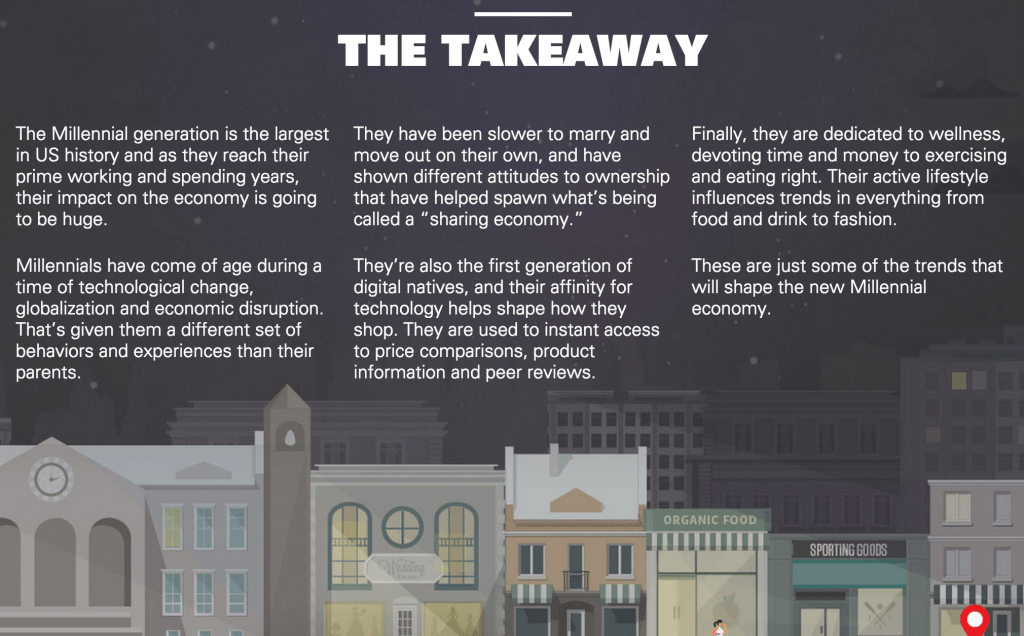
Marketing to Millennials and Consumer Trends
To better understand how marketing to Millennials is different, I downloaded a copy of the recently released Millennial Consumer Trend 2015 Study. The study was designed to capture, from a random sample of millennial readers/subscribers of Elite Daily, baseline information about Millennial consumer spending and a snapshot of their digital media consumption and tastes.
Our findings confirmed that millennials are highly educated, career-driven, politically progressive and–despite popular belief–do indeed develop strong brand loyalty when presented with quality products and actively engaged by brands. – David Arabov, CEO Co-founder Elite Daily
Here are the top ten new findings on consumer trends of millennials that Elite Daily gathered through this study:
1. They aren’t influenced at all by advertising. Only 1% of Millennials surveyed said that a compelling advertisement would make them trust a brand more. Millennials believe that advertising is all spin and not authentic. That’s why they use their DVR to skip commercials regularly and avoid banner advertisements on Facebook and various news websites.
2. They would rather buy a car and lease a house. 71% of millennials would rather buy than rent a car, whereas 59% would rather rent a house than buy one. 61% admit that they can’t afford a house. The economy has had a significant impact on millennials, many of whom still live with their parents, have crushing student loan debt and are underemployed. Since they are getting married, having children and getting decent paying jobs later in life, they are putting off owning a home. A car is cheaper to own, and they need one to get around even if they’re still in their parent’s basement!
3. They review blogs before making a purchase. 33% of millennials rely mostly on blogs before they make a purchase, compared to fewer than 3% for TV news, magazines, and books. Older generations rely more on traditional media, whereas millennials look to social media for an authentic look at what’s going on in the world, especially content written by their peers whom they trust.
4. They value authenticity as more important than content. 43% of millennials rank authenticity over content when consuming news. They first have to trust a company or news site before they even bother reading the content that they produce. Blogs are meant to be authentic, and many of them are run by a single individual. Millennials connect best with people over social media.
5. Their future inheritance won’t change their buying behavior. Despite the $30 billion inheritance that Accenture predicts will transfer from Baby Boomers to Millennials in the upcoming years, 57% said that the money won’t change their spending habits. This thinking is surprising because most people would think that this money exchange would make millennials spend even more yet our findings report that it won’t have an impact.
6. They want to engage with brands on social networks. 62% of millennials say that if a brand engages with them on social networks, they are more likely to become a loyal customer. They expect brands to not only be on social networks but to engage them.
7. They want to co-create products with companies. 42% said they are interested in helping companies develop future products and services. In our society, companies usually create products and hope that their target market will consume them. When it comes to millennials, they want to be more involved with how products get created. Companies that enable them to be part of the product development process will be more successful.
8. They are using multiple tech devices. 87% of millennials use between two and three tech devices at least once on a daily basis. 39% are either very or completely likely to purchase a tablet computer in the next five years, while 30% are for wearable devices. When there’s new technology available, you can bet that millennials will be all over it! To keep your brand relevant, and appealing to millennials, you need to be able to engage them on new platforms as they are released. For instance, having an application on the iWatch could be a good long-term investment.
9. They are brand loyal. 60% said that they are often or always loyal to brands that they currently purchase. The sooner you build a relationship and deep connection with millennials, the better because they will continue to buy from you as an adult.
10. They expect brands to give back to society. 75% said that it’s either fairly or very important that a company gives back to society instead of just making a profit. They are sick and tired of corporate greed and are still recovering in the aftermath of the financial crisis. Millennials love brands that support their local communities and would rather purchase from them than competitors.
Marketing to Millennials: You’re Doing it Wrong
In conclusion, by now it should be clear that millennials need to be engaged on their terms. Rackspace Digital in its post on Marketing to Millennials: You’re Doing It Wrong (Infographic), suggested a few quick tips on how to successfully market to this elusive audience:
___
Do you have any tips or strategies on marketing to millennials? Are you a millennial? We’d love to hear from you.
Are you a Millennial?
We’d love to hear from you.

